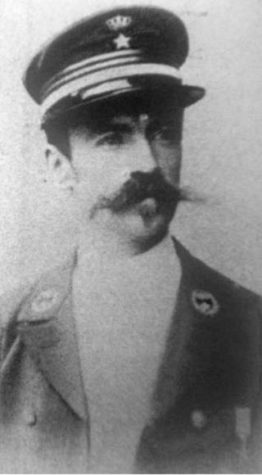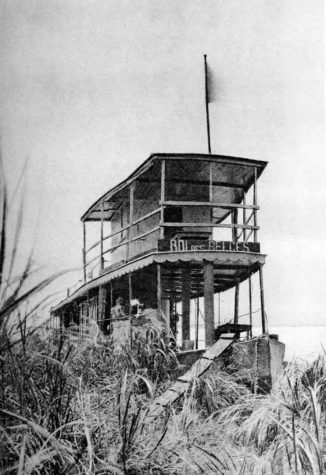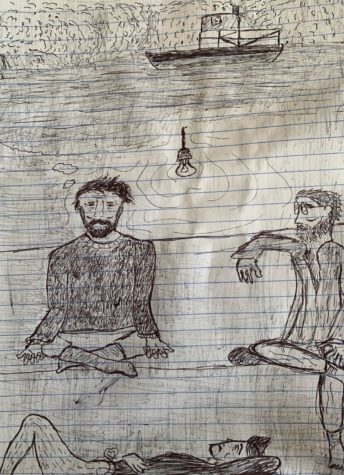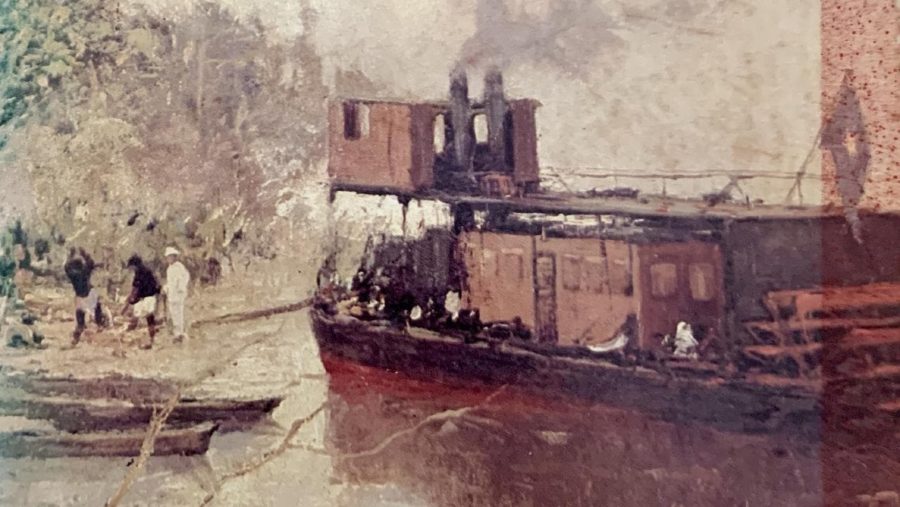The Heart of Darkness: Review and Recap
November 21, 2019


If you’re in an AP literature class this year, there’s a chance that you might have been reading Joseph Conrad’s 1899 novella “Heart of Darkness”, a yarn-spun eulogy to the evil of Europe’s early 19th century colonization invasion and the very vaguely presented and up-to-interpretation darkness of man’s great deeds and primeval past. It was directly inspired by Joseph Conrad’s own miserable time in the Congo, where he worked for one year on a janky ship parallel to that Marlow, the novel’s main character, had used.
The story is written in the frame narrative of a man on a boat. At the time frame narratives in literature were essentially non-existent, so many disliked the book because of this. Today they are of course less uncommon, and even less disliked. From Mrs. Goldsmith’s 2nd period class, Lily Liang says,
“I really liked the framed narrative device because it provides a level of foreshadowing that most books can’t get.”

Next in the story, our narrator listens to a recounting of another man’s time on a boat; cruising through the Congo and capturing the cruelty of colonization as it tears through and up the river, our main character Marlow after a meeting with the capaciously captivating Mr. Kurtz. Marlow makes a point to mark Kurtz repeatedly as an enigma in the story, and the absolute attention of his time in Africa. Why?
Kurtz is thought to be the embodiment of Europe in it’s invasion itself, or the dark and twisted will it takes to pursue great dreams. It’s not clear at all, and while many different interpretations are assigned to his intended message, the Author provides no clear answer, leaving it up for the reader to raise all questions and answers themselves. So what do other students think of the remarkable Mr. Kurtz?
A student in Mrs. Goldsmith’s period 2 AP Lit class, Ms. Mercado, shared her stance on what his purpose might’ve been.
“I think Kurtz is supposed to be representative of the European imperialism, and how they exploited the Congo region.”
Very solid interpretation of his representation. And what about the darkness that permeates the whole novella from Marlow’s marooned memory to the narrator’s no-nonsense conclusion? She continued to add,
“The darkness stems from the heart of central Africa. As Marlow gets closer to this heart of darkness, he gets further from civilization where everybody can observe and judge your actions. Past all the foliage, there is a darkness that is hidden by the jungle. And so the darkness, to me, is kind of like greed and abuse of power that Kurtz and others are controlled by because people aren’t there to judge them.”
In other words, the darkness is the absence of light, light being the collective conscience of society which reminds you of the differences between what is right and what is wrong.
Kurtz and the ever present darkness are key elements in the Novella’s themes and message, but there are plenty more elements throughout the text that compliment these two ideas and give nuance. For example, after main character Marlow makes his arrival before the foreshadowed station of Mr. Kurtz, where he resides, we meet an odd-ball man, Russian and in colorful quilted closed clothes. He’s spontaneous and fascinated over Mr. Kurtz, and is quite a curve-ball for the reader to interpret right before Mr. Kurtz. Is he supposed to represent the moral indecision or abandonment of colonists at the time? Is he an embodiment of Marlow’s own fascination with Kurtz? I turned back to my own previous well-perceiving person of period 2 to see what she thought.
“I think he is there to provide depth to Kurtz. He talks about how he’s continually amazed with him, yet Kurtz has this darkness surrounding him. Kurtz has even threatened to shoot the Russian man. This event is supposed to characterize Kurtz as kind of psychotic. He’s so obsessed with getting ivory so he can gain profit, and so the Russian man is just there to enforce this idea.”
And what did students think of the book overall? Lily Liang from Mrs. Goldsmith’s period 4 sums it up for it’s historical significance:
“Heart of Darkness is a book that changed the way many people viewed colonization in Africa and the treatment of the natives, but was still a book that held the perspective of European superiority over the African natives.”

A century later it’s impact and significance is still discussed in classes across the country, a very bold and controversial retrospective on what Europe was doing in Africa, and why they were doing it. Through the Novella Conrad can convey the stark impact all of it had on both the indigenous people, their land, and the people behind it all too.


